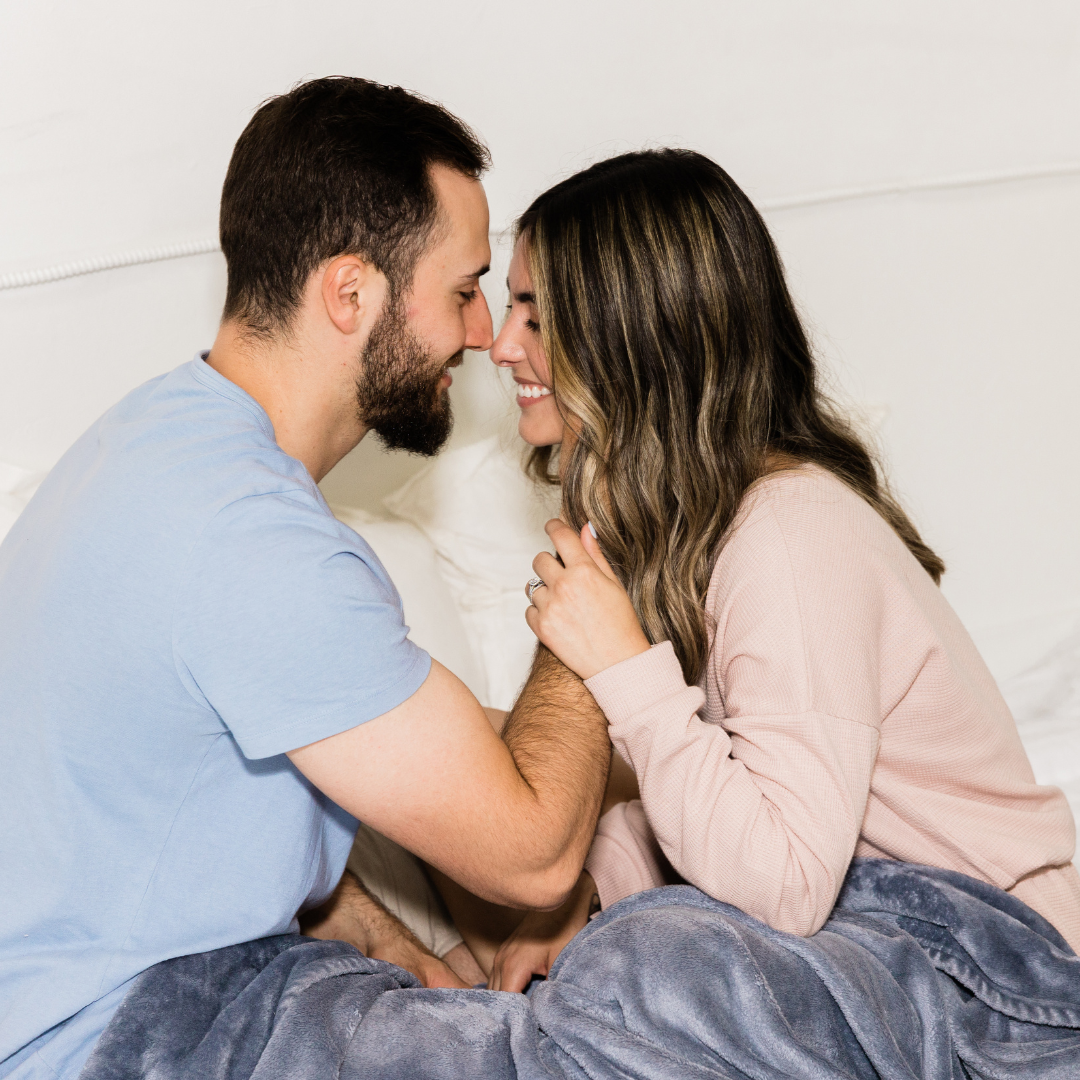How Can I Let My Spouse Love Me When I Don’t Even Like My Own Body?
How to Stay Connected So You Don’t Feel Like Strangers at Bedtime
https://www.youtube.com/watch?v=NkbglzuxW1Q
“It’s not something I talk about ever… but it’s something that bothers me always.”
That’s what my client told me recently. She said her struggles with body image showed up most of all in the bedroom.
Maybe you can relate. Maybe you don’t feel attractive or safe—even in your own marriage. Maybe you want to hide your body, even from the person who loves you most.
If that’s you, I want you to know: You are not alone, and there is hope.
Why This Stays Hidden (and Why That Hurts You More)
When we don’t like our own bodies, we often keep it quiet. We push it into the dark. But here’s the thing—things grow in the darkness.
Unfortunately, when body shame grows, it impacts you emotionally, relationally, and spiritually:
- Emotionally – You may feel insecure, anxious, and even unworthy of touch, desire, or pleasure.
- Relationally – The “I want you / I don’t want you” cycle sets in, creating distance and confusion for both spouses.
- Spiritually – You know you’re “fearfully and wonderfully made,” yet you feel broken and flawed. Holding both truths feels heavy.
Silence may seem safer, but it often leaves your spouse confused and hurt—especially if they think your avoidance means you’re rejecting them.
How Body Shame Shows Up in the Bedroom
If you’ve struggled with body image, you might notice patterns like:
- Avoiding sex altogether
- Only being intimate with the lights off
- Changing clothes in the closet to avoid being seen
- Avoiding shared showers or quick cover-ups in bed
- Turning away or staying closed off during intimacy
- Struggling to receive compliments or pleasure
- “Going through the motions” without real emotional connection
This kind of disconnection doesn’t just impact your spouse—it eats away at your own self-esteem.
God’s Perspective on Your Body
Let’s be clear: Your body is not a mistake.
It’s part of God’s beautiful design for connection—emotional, spiritual, sexual, and physical.
God doesn’t just love your soul. He loves your whole being—head to toe. He sees you with complete acceptance. And He desires you to experience goodness in every part of your marriage, including the physical connection.
A Path Toward Healing
Healing starts with truth—not with “fixing” your body, but with transforming how you see and value your body.
One powerful step is including your spouse in the journey so they can better understand your struggle. Here are 4 steps to guide that conversation:
- Reassure your spouse – This isn’t about what they see. It’s about what you believe about yourself. Take them off the hook.
- Believe honesty brings hope – Speaking the truth, even when it’s hard, is your turning point toward healing.
- Repent to your body – Acknowledge the ways you’ve dishonored, dismissed, or devalued it, and receive it as God’s gift.
- Speak gratitude over your body – Start with non-sexual parts:
- “Legs, thank you for carrying me.”
- “Arms, thank you for holding and embracing those I love.” Then, move toward your sexual parts, thanking God for their beauty, design, and life-giving purpose.
If This Feels Overwhelming…
You don’t have to tackle this alone. As a relationship coach, I often serve as a bridge for couples—helping create a safe, supportive space for vulnerable conversations. Discover what coaching together would be like for you. [Click here to set up a call.]
Remember This
You are not broken.
There is nothing unholy about wanting to feel safe and loved in your own body. This struggle does not disqualify you from intimacy—in fact, it can open the door to even deeper closeness with your spouse.
God’s design for a thriving marriage is intimate connection—spirit, soul, and body.





































































































![What if the reason sex feels off…
isn’t because something’s wrong with you—
but because of what you were 'unknowingly' taught to believe?
Messages like:
❌ “Sex is just for men”
❌ “Desire is dirty”
❌ “Your body isn’t yours anymore”
❌ Silence = shame
These hidden beliefs shape how we show up in marriage, whether we realize it or not.
? In Episode 1 of Permission to Enjoy Intimacy, we’re uncovering the roots of your view of sex and why it still matters today.
? Watch now on YouTube: [link in bio]
? Request to be on the guide Waitlist: [comment WAITLIST]
You were never meant to carry shame into the bedroom.
Let’s replace the lies with truth that brings freedom.
#PermissionToEnjoy #ChristianWife #BiblicalIntimacy #FaithAndSex #HealingFromShame #ChristianMarriage](https://scontent-iad3-1.cdninstagram.com/v/t39.30808-6/515759988_1244404701031340_3597364365629616346_n.jpg?stp=dst-jpg_e35_tt6&_nc_cat=102&ccb=7-5&_nc_sid=18de74&efg=eyJlZmdfdGFnIjoiRkVFRC5iZXN0X2ltYWdlX3VybGdlbi5DMyJ9&_nc_ohc=3vk-PJxi7tUQ7kNvwFzMb3t&_nc_oc=AdljSItFwEELHOhWSxlNkxpWuw1VZy8w2VVInYhxQSJlc2WOFZsPpTemQs4O0S3rJO8&_nc_zt=23&_nc_ht=scontent-iad3-1.cdninstagram.com&edm=ANo9K5cEAAAA&_nc_gid=fZTXwsfwzqOzajXk2bUzCA&oh=00_Aft_ZMtRmg3QTzXZxVA8MDgPK0DrhqKR2hHeFWx-y6Tq7g&oe=69882F1D)









